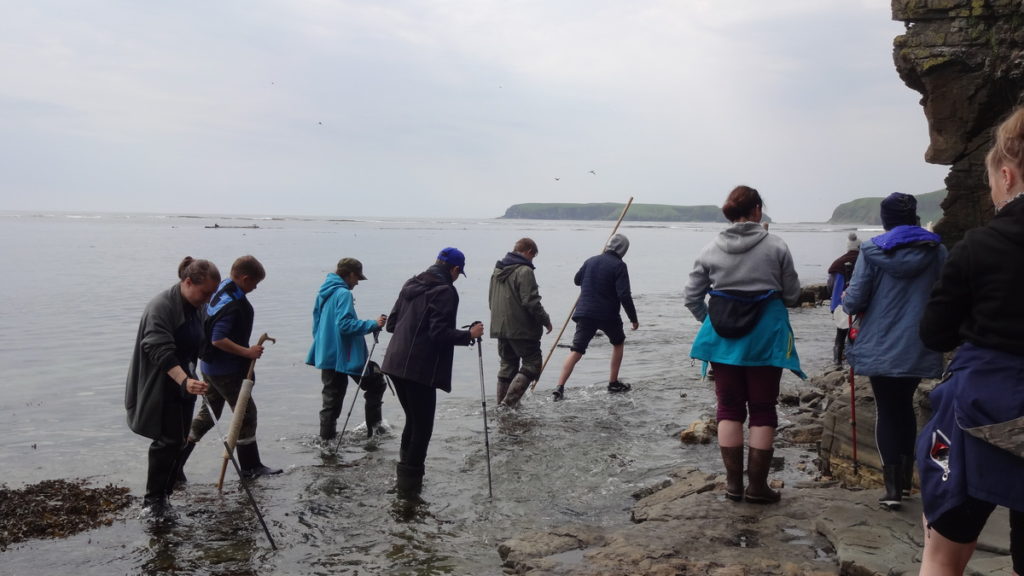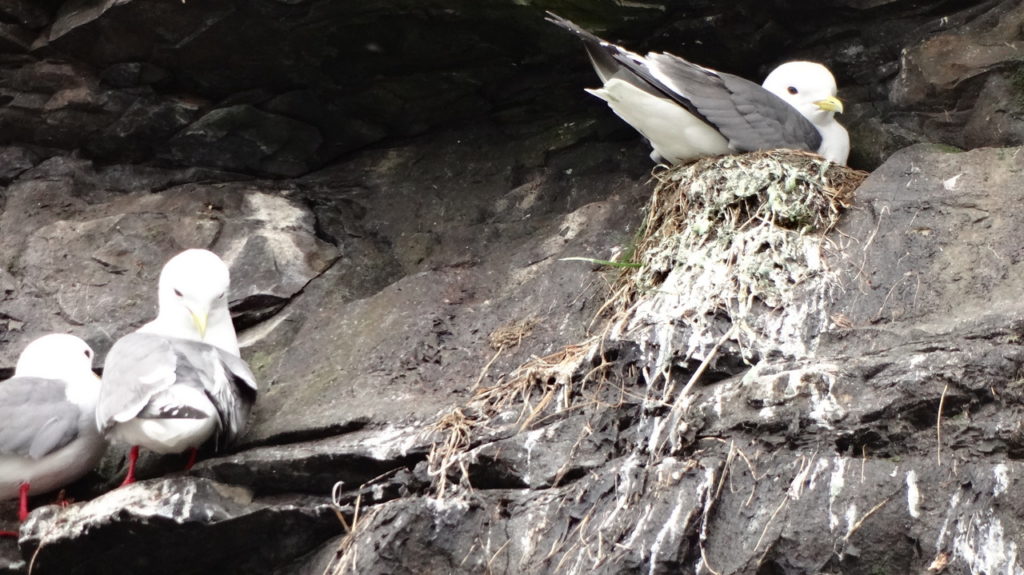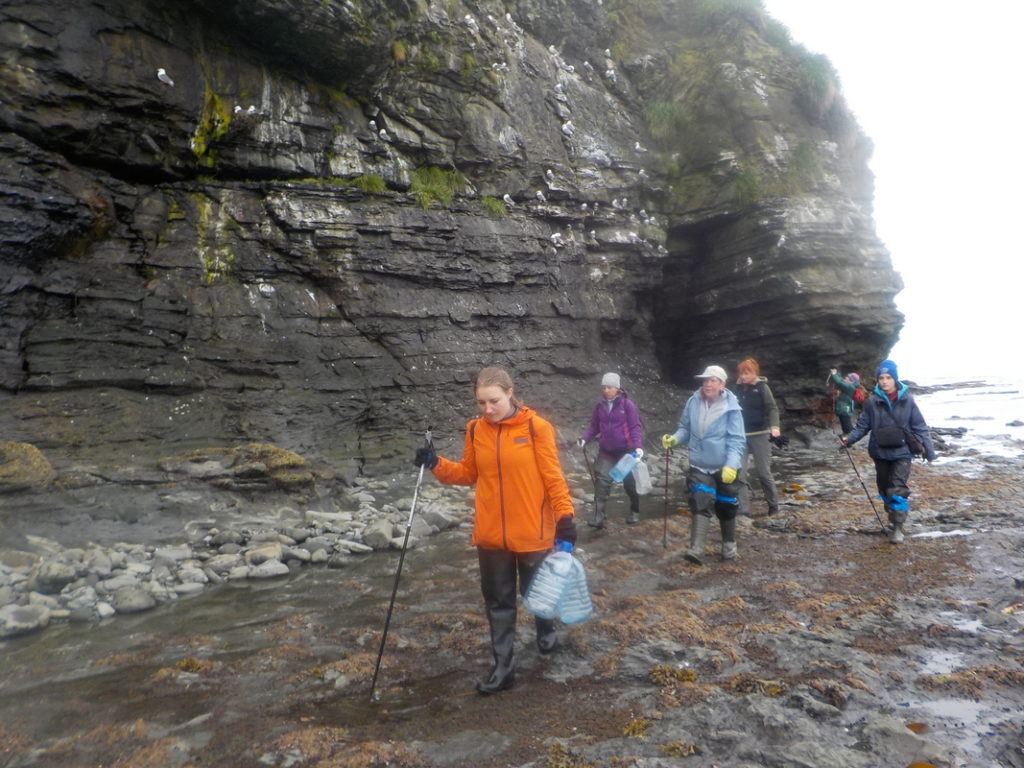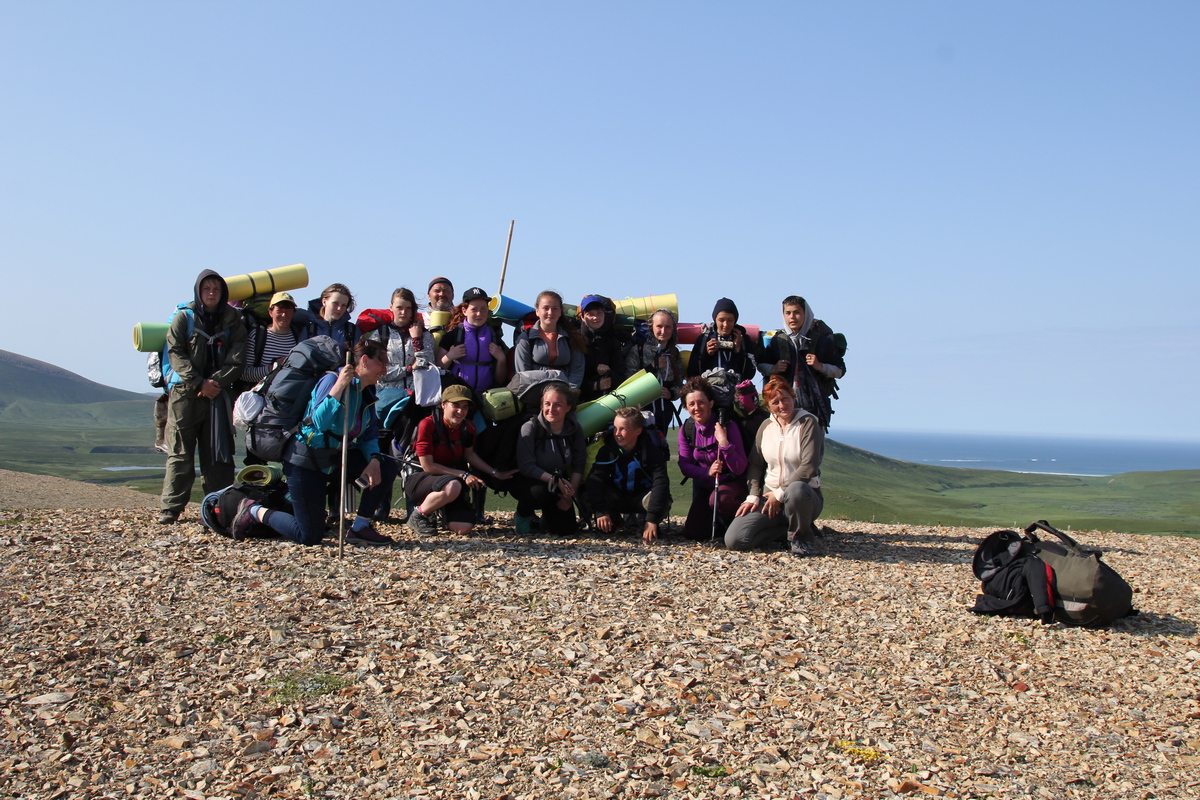The summer ethno-ecological camp “Aglach 2018” on the Commander Islands was another great success.
Students explored Bering island, covering over 130km on foot!
Natalia Formina, camp director, shares the below article that was published in the newspaper ‘Aleut’s Star” in Nikolskoye.
Thank you Natalia for sharing this inspiring report, and to Olga Belonovich for translating the article into English.
Summer ethno-ecological camp “Aglach-2018″

Student’s ethno-ecological camp “Aglah” under the administration of the Aleut municipal district has rune since 2006. This was the ninth year of camp. “Agla” translates from Aleut as “animal” or “beast”. The chief of the camp this year was Yu.V. Avdeenko, employee of the administration.
The route of the trek went along the remote mountainous part of Bering Island’s south end. The Commander Islands Nature and Biosphere Reserve (named after S.V. Marakova) gave us a permit to visit the reserve’s core area in exchange for some volunteer observations that students completed in the area.

Students walked 133.5 km, most of the time caring backpacks on the rough mountainous terrain. Days usually started with moving exercises lead by Vera Vladimirovna Belobrova. Great help to the camp staff was provided by the counselor Marina Levaya, a sixth-year student at the St. Petersburg Medical Academy, former graduate of the Nikolskaya School, and an active camp participant from 2012, 2014, and 2016.
On July 4, students found a dead sperm whale washed on the coast behind the Buyan bay. Using the GPS provided by the administration of the reserve, students mapped location of the rare plant species, recorded number of Arctic Foxes and their burrows, recorded observations of seals and other marine mammals, reindeers, and took photographs. A large herd of reindeer (about 300 animals) grazed near the pass of the Lisinskaya River alley. The graduate student of Nikolskaya School Avdeenko Polina and the 11th grade student Alisa Shitova took their duties very seriously. Tanya Levaya, Sabina Atayeva and Valeriya Kolesnikova to whom Yu. V. Avdeenko, gave cameras, conducted a photo-chronicle of the campaign.
Director of the Aleut Museum, Natalia Sergeevna Fomina (who is also the director of the camp) conducted excursions, and prepared and conducted with the children an ecological KVN, a cognitive game about the knowledge of nature and wildlife of the Commander Islands, marine inhabitants of the North Pacific “Weak Link” (winner Artem Popov).
The final event, summing up the results of the camp, was the Tournament of connoisseurs of Commander Nature, in which Left Tatiana won. By the way, KVN passed on all the canons of this game. A strict jury of adult hikers assessed the resourcefulness and wit of the players.
When we arrived to Lisinskaya bay, Dmitry Pilipenko , ornithologist of the Reserve, gave a lecture on marine birds. Students observed life of bird colonies nesting on Cape Ostrovnaya. In the bay of the Isthmus, students observed two partridges, who regularly made the rounds of the tent camp. Walking on the coast during low tide students observed interesting invertebrates: crabs, sea stars and even a huge octopus. During observations of seabirds along the route, students noticed that there were no nestlings in the red-legged kittiwake and the number of cormorants, especially the red-faced, were very low too.

Traditionally, on each camping site, the best of the best raised the flag of the Aleutian region. During our stay on Tolstiy Cape students were asked to prepare drama pieces on the fables of S.V. Mikhalkov and I.A. Krylov. The theatrical season on Tolstoy is the favorite tradition of our camp. Each time, children surprise adults with their imagination and ingenuity in interpreting the received task and finding requisites and making costumes from natural materials for performance. Also on Tolstoy Cape, Arctic foxes came to visit us: a male and female were not afraid of people and even approached the fire. It turned out that there was a burrow near by with their pups.

The weather was very good: almost no fog and many sunny days. Students visited bird colonies, and twice crossed Bering Island. We tried to go to the ebb through the through-cave to the bay of Dikaya, But seaweed and strong wind violated our plans. Nevertheless, from a distance students could admire the most beautiful and inaccessible bay. On July 13, we crossed the island from the Pereshek to Polovina Bay, which passed near the highest point of the island of Bering Island – Steller mountain (755 m).
On the last day of the camp, everyone visited Komandor Bay for an excursion led by the camp director. Adults and children paid tribute to the participants of the Second Kamchatka Expedition. Tanned, and strengthened with new impressions after 11 days of travel, the group returned to the village.
July 18, 2018, N.S. Fomina.

